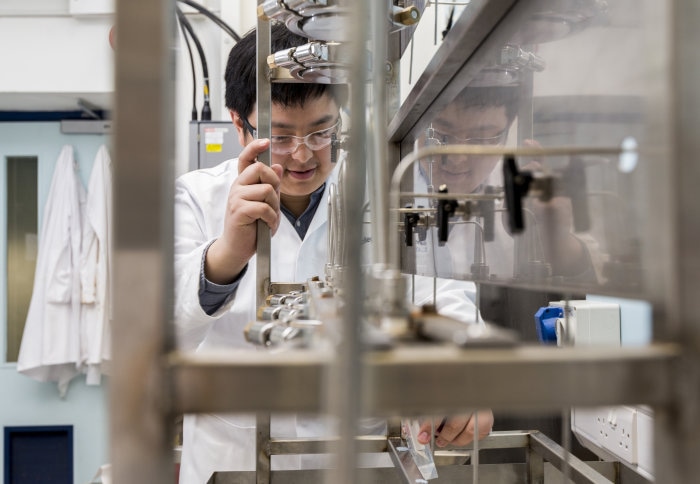Sep 3 2018
Ultrathin membranes have been developed by researchers from Imperial's Department of Chemical Engineering in collaboration with BP.

Researchers from the Livingston Group have uncovered new insights into membrane technology, paving the way for future research opportunities and industrial applications.
An ultrathin polyamide nanofilter, also known as a membrane, is a very thin filter comprised of two parts – a thin polyamide film and a support layer on which the polyamide film sits.
Nanofilters are an important component in water purification processes such as desalination, filtering impurities and creating clean drinking water. They've been used by industry for decades, but little research has been conducted to understand their properties and how they function. Recent research from the Livingston Group at Imperial College London published in Advanced Materials addresses this need.
Improving industrial desalination processes
New research, funded by the $100m BP International Centre for Advanced Materials (BP-ICAM), is studying the fundamental science of membranes to improve the efficiency of off-shore water desalination processes, to reduce the amount of energy used in oil extraction and increase the efficiency of the process.
The oil and gas industry uses nanofilters in off-shore rigs to remove salt from sea water, so that low salinity water can be pumped into reservoirs to extract oil reserves. When studies showed that using low salinity water compared to salt water can lead to a significant increase in production, the oil and gas industry turned their attention to improving desalination processes.
Dale Williams, Senior Process Engineer at BP, explained: “In our Upstream operations we need to use large volumes of water to support oil and gas production. This water is typically sea water, so we have to treat it for it to be suitable for injection into our wells. If we also remove a large proportion of the salt that is in solution, this enables a greater proportion of oil be swept from the surface of rocks.”
Sheetal Handa, Associate Director of the BP-ICAM at BP, added: “Membranes give us the opportunity to take sea water and to generate the low salinity water that we need to recover more oil and maximise our operational efficiency. Crucially, this requires us to really understand the fundamental composition and workings of polyamide membranes, which the BP-ICAM research carried out in Professor Livingston’s Group is delivering to BP.”
A Film about Films: Membranes Research at BP-ICAM